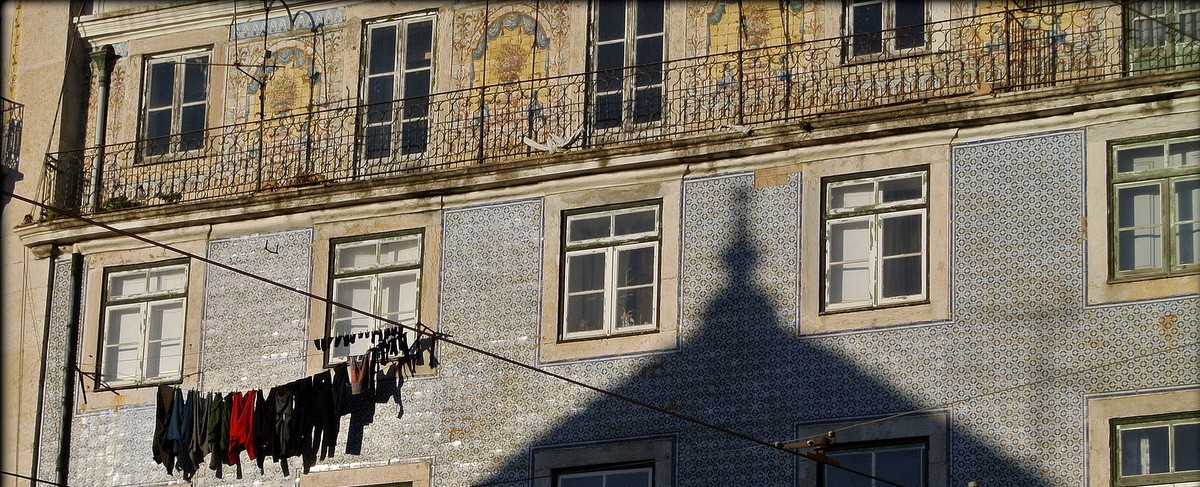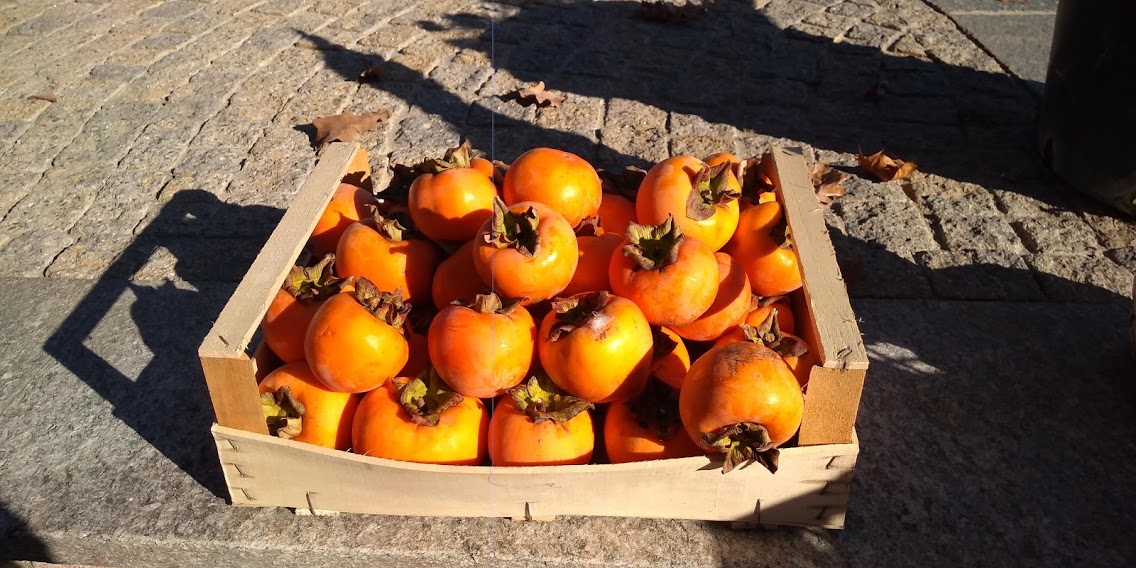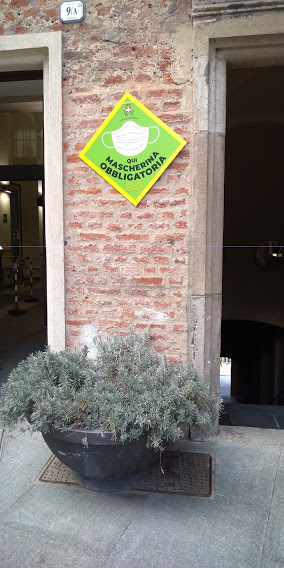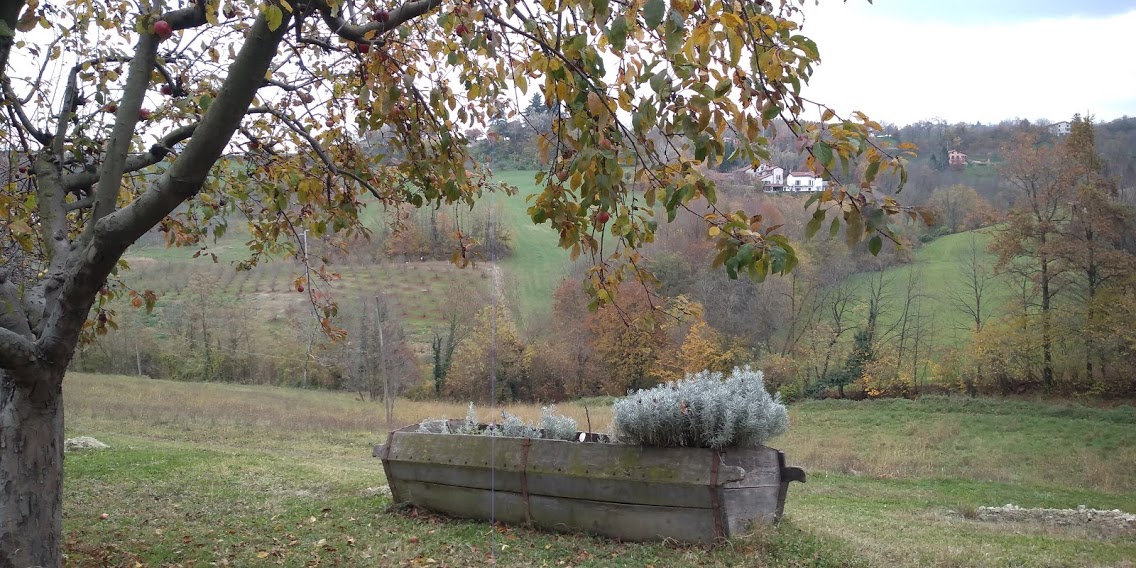LESLIE MCBRIDE WILE
With November comes la nebbia, the fog that rises from Piemontese valleys and blankets the plain of Lombardia. On the day before the United States presidential election I watched it form above our prato, the damp air of a chilly afternoon thickening itself until a scrim became a veil, then went completely white, obscuring the woods at the far side of our meadow. The fog seemed a live thing, breathing, expanding, coalescing, rising to engulf our house and then, as if suddenly achieving perfection, lifting its skirts, taking itself aloft and away, over the treetops and up toward Piazza.
4 November
My husband and I are keeping busy today, trying to avoid checking news of the USA elections while ballot counting continues. We spent the morning running errands; now we’ll take a walk in val Ellero, stopping afterward in Roccaforte for a gelato, the last we’ll be allowed until early December. From 6 November Piemonte is once more a zona rossa, one of three regions with the highest rates of new coronavirus infections. This is less than total lockdown, more like the first phase of re-emergence in May. Certain shops remain open, bars and restaurants may sell take-away meals and coffee, home delivery of everything from groceries to hardware is now common. Still, permits are required whenever we leave home and we are not to leave our comune without good reason: work, study, medical, official business. A nationwide curfew is in effect between 10 pm and 5 am.
I sense regret, even sadness in the air. In Corso Italia this morning every sidewalk table was filled, people enjoying a last coffee together in the pale November light. It’s hard to convey, but losing the simple pleasure of taking a coffee with friends at an outdoor table is a real blow to our quality of life here.
10 November
The virus is closing in hard; in Mondovì the mayor is under quarantine after testing positive, and every day another case closes another classroom, sending teachers and students to home isolation and remote learning. Drive-by testing is offered to anyone with symptoms, in the parking lot of the hospital emergency room. My husband and I are self-isolating, limiting contact with others and keeping errands and shopping to a minimum. This time we actually know several people with family members who’ve tested positive–fortunately none have been seriously ill–and our local hospital and others in the region are full to capacity with COVID patients.
For our 35th wedding anniversary yesterday I hung garlands of late-blooming marigolds on our front gate. We walked one of our favorite little roads, stopping to picnic in the yard of a 13th century church. It wasn’t the celebratory trip to Casablanca that we’d planned, but a minor disappointment compared with lost jobs, schooling, and lives disrupted.
15 November
Cranes and construction sites are popping up like mushrooms in every part of Mondovì; I encounter a new obstacle almost every time I go into town and it seems every street or alley I want to walk or drive is obstructed by scaffolding, dumpsters, barriers, trucks, and men at work. The reason for this sudden burst of activity is one part of the Italian government’s plans to invigorate the sagging economy. They have wisely reduced to almost nothing the usual rate of sales tax on all renovations of existing structures and are offering a tax rebate on 100% of expenses for energy efficiency measures. Discounts are so steep that many people are launching projects to take advantage of the savings. It’s a smart move, putting all those builders, architects, and artisans to work and stimulating the market for building materials all at once.
18 November
The light of another warm, sunny November day crests the horizon and I am up and out of bed. This weather can’t last, we think, so we make the most of it. My husband’s motosega joins a chorus of chain saws echoing around our valley and I continue dividing and transplanting perennial flowers and small woody shrubs from the older part of the garden to new terraces and beds we made in the spring. I shared a bucketful of coreopsis cuttings with our neighbors, who promptly gifted us with a crate of persimmons from the tree in their cortile.
We’re still having lunch on the terrace most days, although our ombrellone is stored now for the winter. By 2:30 pm the sun sinks below the trees and the air is cool.
Yesterday we placed stakes on a slope where we hope to plant a little group of pines and birches before the rains come; we’ve chosen the trees and now we wait for the landscapers to deliver and dig them in. They are sizeable specimens, seven to nine feet tall, so they will have an immediate effect on our view and (we hope) will be lovely in the snow.
30 November
Our Thanksgiving was a subdued affair, like many others in the States. I ordered a turkey breast from the butcher, who bought a whole bird and cut away the breast just for us—the sort of small-town service I still find extraordinary and gratifying. Italians do eat turkey, but never a whole bird–usually as cutlets or sections of the leg sliced like osso buco. One year I ordered a whole turkey for a shared meal with other expats, and caused a sensation in the butcher shop when I collected it. All the other ladies wanted to know what on Earth I was going to do with a whole turkey, but when I explained the bread stuffing, the roasting and basting, they nodded approval and wished me buon lavoro.
It’s ironic that after all the Thanksgivings my husband and I have been apart, this year we found ourselves at home together but unable to fill our dining room with friends. We celebrated anyway, got dressed up and sat down at our festive table. Grateful beyond measure, really. We listened to “Alice’s Restaurant,” taking care not to choke on our laughter while we ate turkey and stuffing, brussels sprouts with bacon, pureed squash from our orto, and a very small blueberry pie.
November is wrapped, just in time for a week of cold, wet weather—three birch trees planted; the new garden shed sporting a proper roof; the fruttetto pruned, twigs and branches tied into bundles. Yesterday Piemonte moved from the red zone to the orange, which means more businesses open for Christmas shopping but most other restrictions remain, including movement between towns and after 10 pm. The government still recommends gatherings of no more than six people, which has Italians disappointed but resigned to very different celebrations at Christmas and New Year’s Eve—no big family dinners, no piazzas thronged with people waiting to welcome 2021. It’s a somber time here, but most everyone seems to accept the necessity to sacrifice the present for a happier, healthier future.




